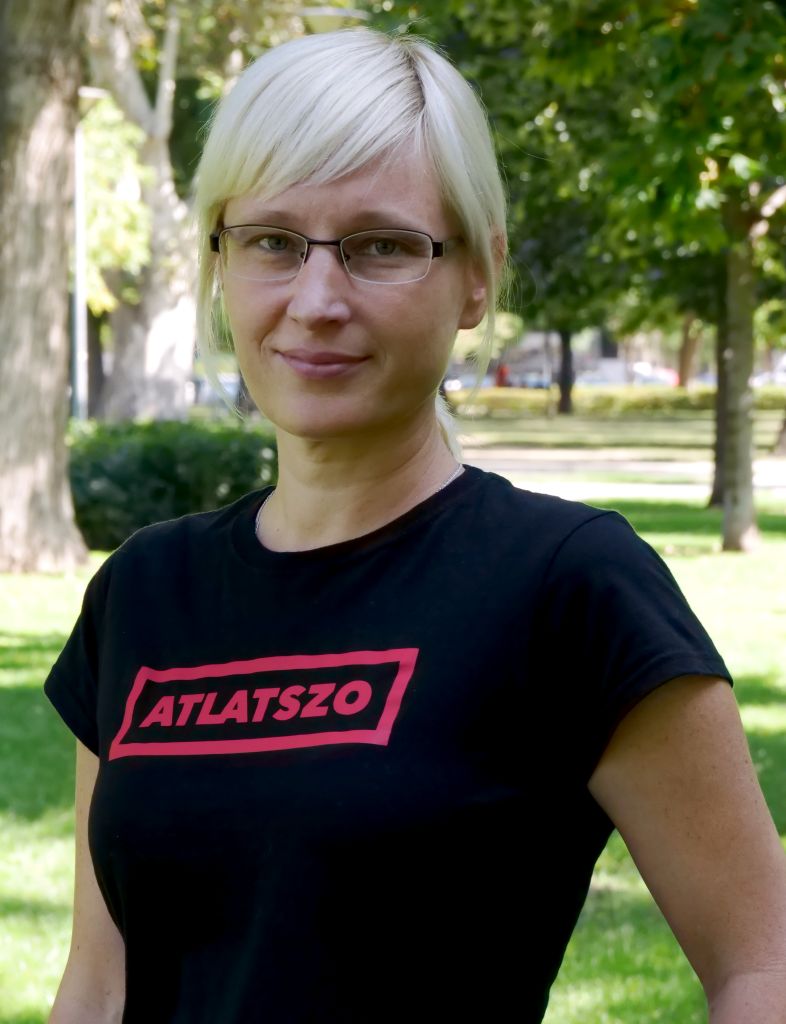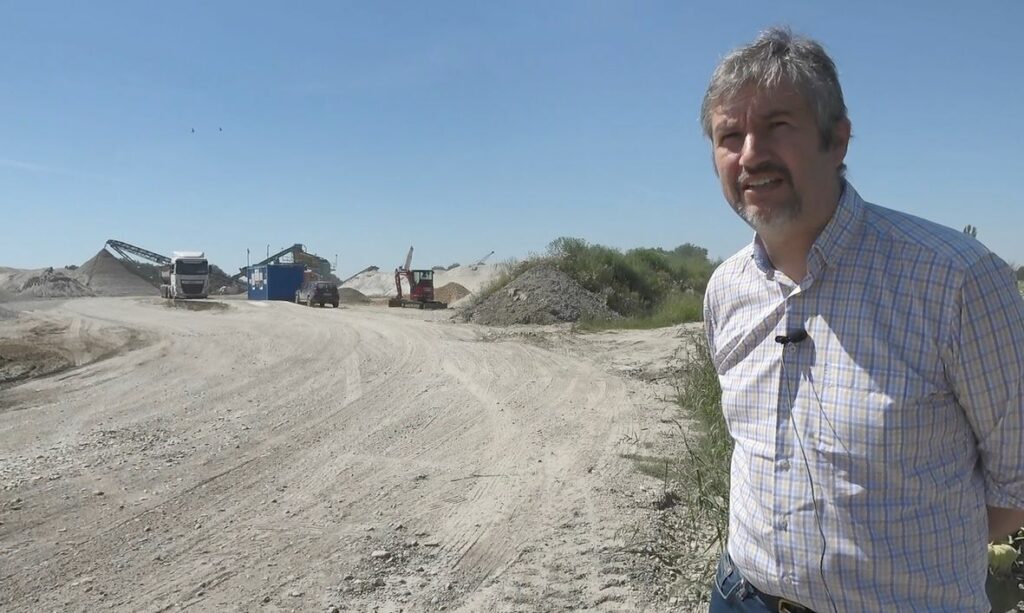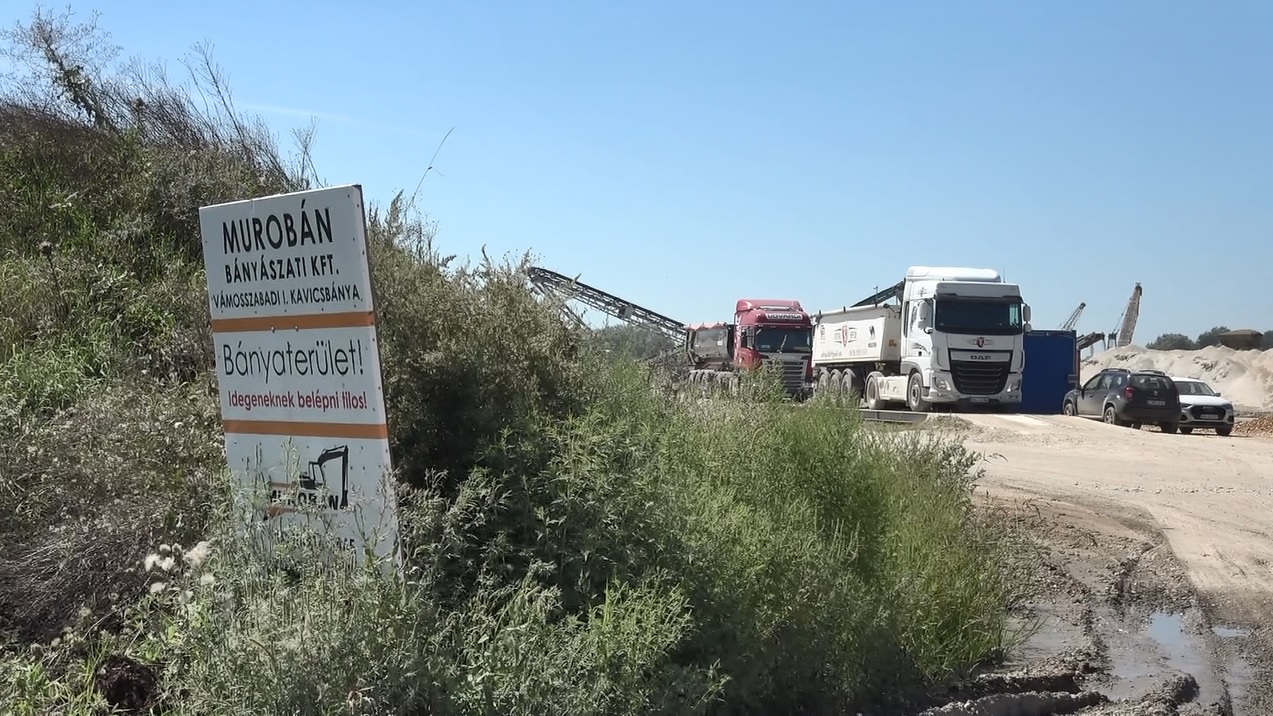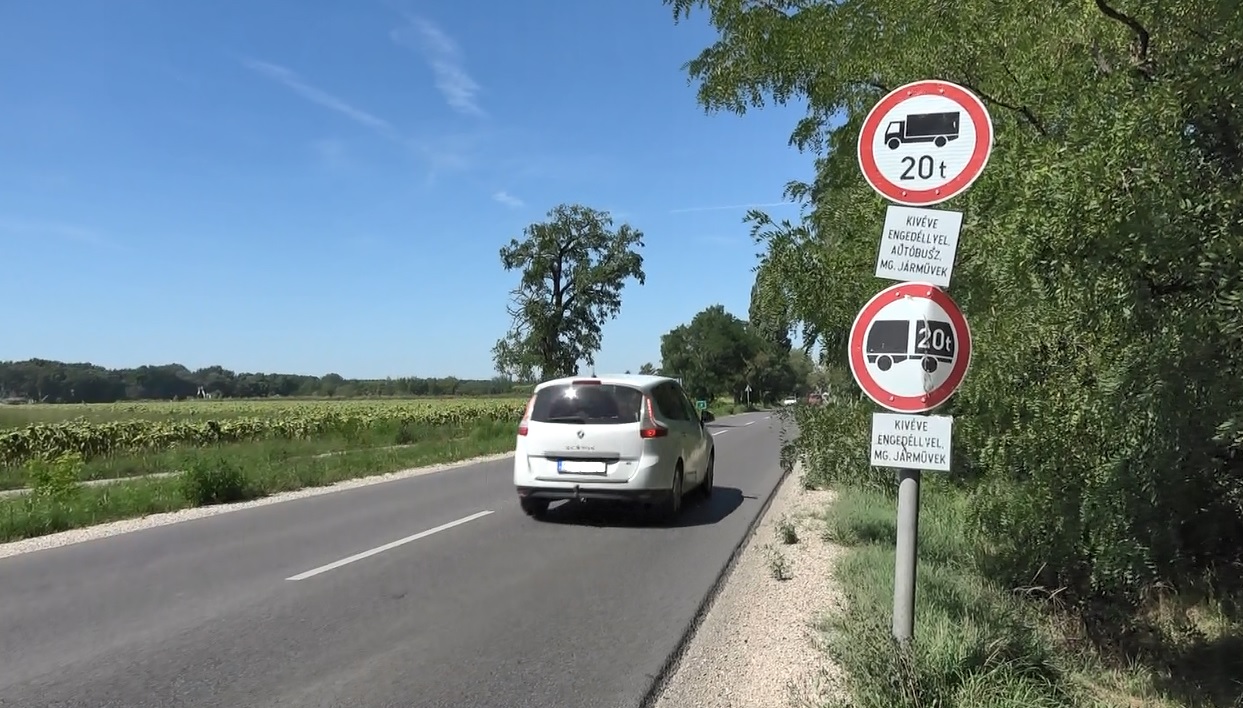The https://english.atlatszo.hu use cookies to track and profile customers such as action tags and pixel tracking on our website to assist our marketing. On our website we use technical, analytical, marketing and preference cookies. These are necessary for our site to work properly and to give us inforamation about how our site is used. See Cookies Policy
Regulation has killed off the competition, Orban’s nephew’s gravel mine is flourishing
It takes about 40 seconds to cross the road section where the Hungarian Public Roads Company introduced a weight restriction in November 2022. However, these few seconds and a few hundred metres are just enough to put a nearby gravel mine in an almost impossible situation. And the situation suited another mine, co-owned by none other than Viktor Orbán’s nephew, Dávid Orbán. Independent MEP Ákos Hadházy believes that this is the first and very concrete proof that the Orbán-family is using the state apparatus to enrich itself.
Road 1401 connects two cities in north-west Hungary: Győr and Mosonmagyaróvar, near to the Austrian border. Last year, the public road operator imposed a 20-tonne weight limit on one of its sections, between the villages Győrzámoly and Győrújfalu. This means that vehicles heavier than 20 tonnes will not be allowed to cross the road from November 2022. The only exceptions are buses and agricultural vehicles, and companies that have access permit on the stretch.

However, the nearby gravel pits have not been given access permit, despite requests. As a result, some companies’ trucks cannot access the Frissbeton/Strabag concrete mixing plant in Győrújfalu (just a few kilometres away), or can only do so by a huge detour.
This has been such a serious blow to one of the gravel quarries in Győrzámoly that it has closed down, while another company in Darnózseli has seen its turnover drop completely: Lajta-Kavics Mining Ltd. had been doing well, with an annual turnover of HUF 300-400 million. It was considered one of the largest suppliers in the region, but this is no longer the case.
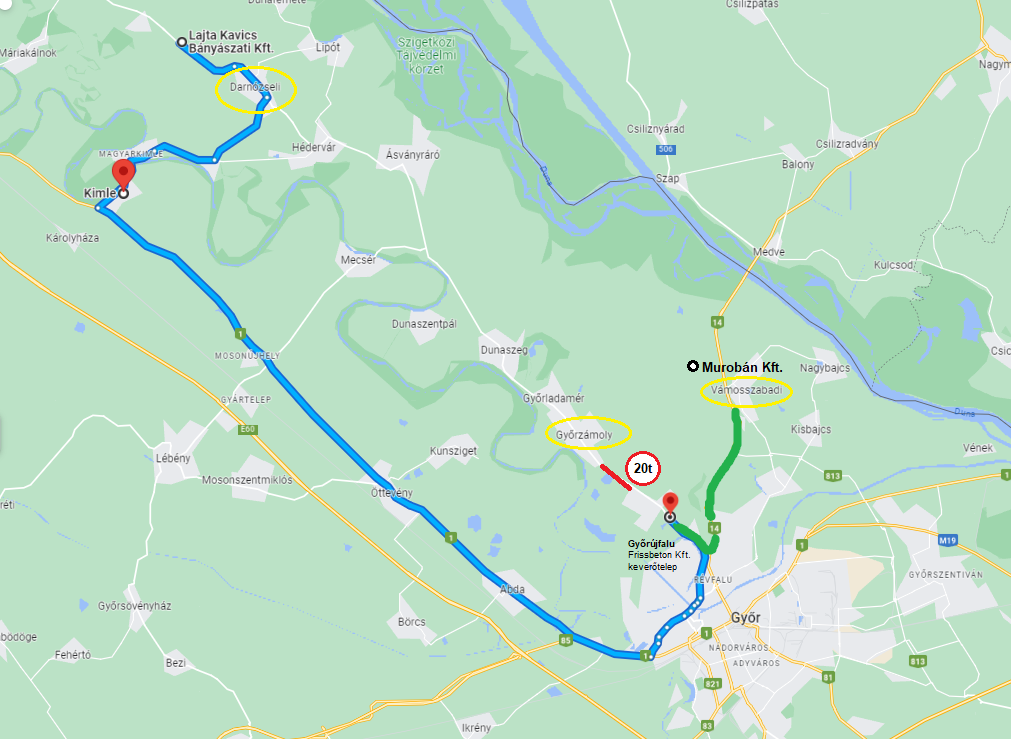
The mine of Murobán Ltd. is not affected by the restriction, but the trucks of Lajta-Kavics have to pay a huge price (source: Google)
Life in the Darnozseli mine has almost come to a standstill since the introduction of the weight restriction. We did not see any movement in the gravel pit when we were there. Not a single truck was coming or going, and the gravel was in piles – although this had never happened before, according to the locals. In fact, as they said, at least 50 trucks a day used to turn around the quarry.
The restriction does not, however, affect the Murobán Ltd. mine in Vámosszabadi, which has been operating for only one and a half years. Rumour has it that the company took over the Darnozseli mine’s place, and has become the main local supplier to the largest concrete producer, Frissbeton. As Murobán did not reply to our enquiry, we followed one of their trucks on site to find out where the gravel was being taken.
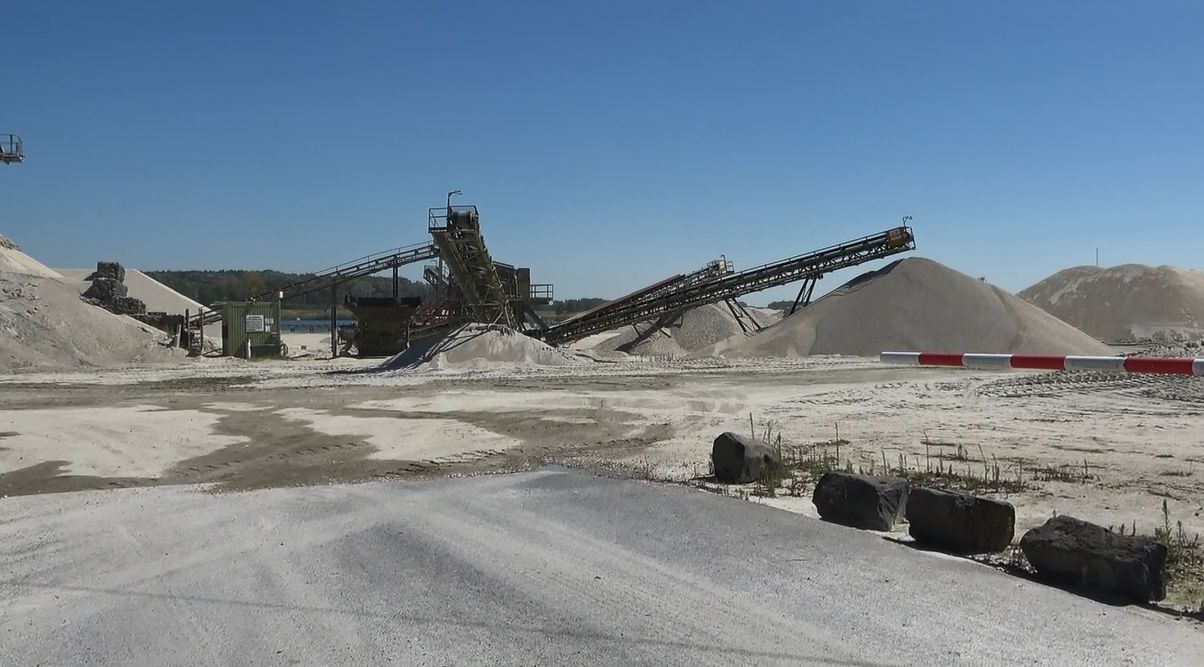
Life in the Darnozseli mine has almost come to a standstill since the introduction of the weight restriction.
The truck we followed did not end up in nearby Győrújfalu, but in the Tata industrial park, where Frissbeton also has a site (and where Lajta-Kavics can only reach by detour since the introduction of the restriction). So the rumours may not be unfounded.
We have asked Frissbeton Ltd. whether the allegations that Lajta-Kavics Mining Ltd. supplies little (or no) gravel to their sites in Győrújfalu/Tata Industrial Park, while Murobán Ltd. supplies an outstanding amount of gravel to their sites in Győrújfalu/Tata Industrial Park, are true. The owner Strabag has stated that this information is a business secret and cannot be disclosed.
Viktor Orbán’s nephew is one of the owners of the new mine
What is clear from the company report is that Murobán Ltd. of Győr was in the right place at the right time. Although the company has been in existence since 2017, it was only at the beginning of last year that they opened a branch in Vámosszabadi, at parcel number 0112/3, which is none other than the gravel pit itself. To do this, the agricultural land had to be reclassified, but the Vámosszabadi council voted in favour without any dissenting votes or abstentions.
The newly opened mine quickly took off: the company’s asset base expanded significantly and revenues rose from 46 million Forints to 212 million in a year. And what could be the secret to the new mine’s success? According to some, it’s because Prime Minister Viktor Orbán’s nephew, Dávid Orbán, became a co-owner of the company together with a Győr lawyer, Dr. Máté Mürkl, just before the mine opened at the end of 2021.
So there is someone to carry on the Orban’s family mining tradition, and apparently very successfully. To what extent a seemingly harmless weight limiting sign on the few hundred metres between Győrzámoly and Győrújfalu, which has just succeeded in making the biggest competitor impossible to reach, has contributed to this is a matter of judgement. But so far no one has refuted the allegations.
At the same time,
independent MEP Ákos Hadházy believes that this is the first and very concrete proof that the Orbán-family is using the state apparatus to enrich itself.
We asked the Hungarian Public Roads Company, why they only put up a weight limit sign on the few hundred metres of the several kilometres of the renovated section, but they did not respond to our request. We have also not received an answer as to which companies have applied for and received access permits and which have been refused. Dávid Orbán and Máté Mürkl also did not answer our questions, nor did the Lajta-Kavics Ltd.
Written and translated by Eszter Katus. More detailed Hungarian version of this story can be found here. Photo: MEP Ákos Hadházy in front of Dávid Orbán’s mine. Credit: Eszter Katus / Atlatszo.
Share:
Your support matters. Your donation helps us to uncover the truth.
- PayPal
- Bank transfer
- Patreon
- Benevity
Support our work with a PayPal donation to the Átlátszónet Foundation! Thank you.
Support our work by bank transfer to the account of the Átlátszónet Foundation. Please add in the comments: “Donation”
Beneficiary: Átlátszónet Alapítvány, bank name and address: Raiffeisen Bank, H-1054 Budapest, Akadémia utca 6.
EUR: IBAN HU36 1201 1265 0142 5189 0040 0002
USD: IBAN HU36 1201 1265 0142 5189 0050 0009
HUF: IBAN HU78 1201 1265 0142 5189 0030 0005
SWIFT: UBRTHUHB
Be a follower on Patreon
Support us on Benevity!
